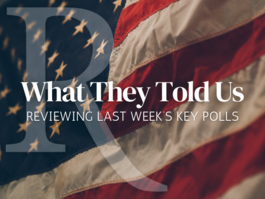Deficit Worry Is the Greenest Shoot
A Commentary By Froma Harrop
Never mind firmer retail sales, rising stock prices and moderating job losses. The greenest shoot is Americans' changing economic fixation. There's less panic over collapsing banks, home foreclosures and the prospect of another Great Depression. Attention has moved to budget deficits and the resulting federal debt. These are worries of a more stable time, when people had the luxury of looking at the long-term.
Suddenly there's talk of hiking taxes and curbing federal spending, which you shouldn't do when the economy is flat on its back. These actions require discipline and sacrifice. They're no fun at all but preferable to a trip to the abyss.
Deficits are a disease we can diagnose, and they have a cure we can understand. We know how bad the problem is -- unlike in the dark recent past, when no one could fully assess the threat of the mysterious derivatives, the so-called financial weapons of mass destruction.
That said, while budget deficits are a more ordinary concern, today's projected federal imbalances are not ordinary deficits. This year's expected deficit of $1.8 trillion is fueled by the deep recession.
The bailouts, economic stimuli, social-safety-net spending and reduced tax revenues are presumably temporary. But the nonpartisan Congressional Budget Office projects a 2019 deficit of $1.2 trillion, even assuming respectable economic growth. And everyone's getting nervous about rising interest rates and how they will bloat the government's borrowing costs.
These numbers are huge. They can't continue. But note that new programs, if they're paid for, don't add to deficits.
President Obama vows that his health-care reform will be paid for. Part of that comes from cutting the enormous waste out of the medical system. Proposed restraints in spending have set off well-financed protests by doctors, hospitals, drug makers, insurers and others who make a dollar off health care. Trying to impose discipline is a thankless task for which the president deserves applause.
Obama's predecessor dispensed with such niceties in pushing through his 2003 Medicare drug benefit. The year before, Congress had conveniently discarded the pay-go law, which required new entitlement spending to be offset by tax increases or spending cuts elsewhere. The Medicare drug benefit was passed with absolutely no thought of paying for it.
Obama now wants Congress to pass a new pay-go law, albeit one somewhat more lenient than the old version. His would allow offsetting cuts in spending over a 10-year period, rather than at the end of any year the rule was triggered. This approach makes it easier to restructure programs for the long term. For example, health-care reform will cost a lot but eventually also produce savings.
Of course, pay-go doesn't balance off past spending decisions, as its critics note. "All this does is prevent the hole from getting deeper," concedes Obama budget director Peter Orszag. Pay-go is but one fix.
Face it, taxes must be raised. Letting the Bush tax cuts for the top incomes expire is the easy part. Obama must also drop the fantasy that the middle class can be spared from any heavy lifting.
Meanwhile, conservative and liberal economists are talking up a value-added tax, a kind of federal sales tax that would be ultimately borne by all economic classes. A European-style VAT is paid at every step of production. That, its foes argue, makes VAT a hidden tax: Consumers don't know what's hitting them. Given the political realities of raising taxes, the VAT's stealth qualities would seem a virtue.
If an efficient health-care system, safe bridges and cleaner environment are also part of the bargain, then let's move forward. As specters go, higher taxes beat breadlines any day.
COPYRIGHT 2008 CREATORS SYNDICATE INC.
See Other Political Commentaries
See Other Commentaries by Froma Harrop
Views expressed in this column are those of the author, not those of Rasmussen Reports.
Rasmussen Reports is a media company specializing in the collection, publication and distribution of public opinion information.
We conduct public opinion polls on a variety of topics to inform our audience on events in the news and other topics of interest. To ensure editorial control and independence, we pay for the polls ourselves and generate revenue through the sale of subscriptions, sponsorships, and advertising. Nightly polling on politics, business and lifestyle topics provides the content to update the Rasmussen Reports web site many times each day. If it's in the news, it's in our polls. Additionally, the data drives a daily update newsletter and various media outlets across the country.
Some information, including the Rasmussen Reports daily Presidential Tracking Poll and commentaries are available for free to the general public. Subscriptions are available for $4.95 a month or 34.95 a year that provide subscribers with exclusive access to more than 20 stories per week on upcoming elections, consumer confidence, and issues that affect us all. For those who are really into the numbers, Platinum Members can review demographic crosstabs and a full history of our data.
To learn more about our methodology, click here.



